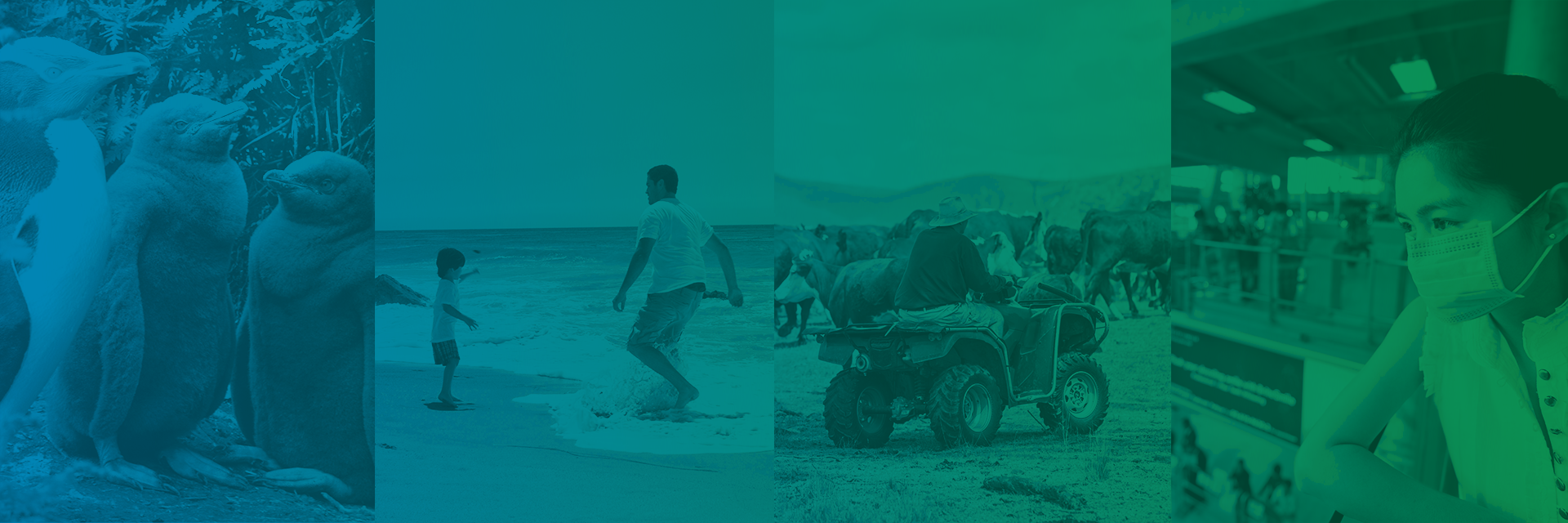Supercharging epidemiology with IT
Build your ability to better understand IT and digital tools so the technology serves you and not the other way around. Don’t miss out on innovative methods to advance your work!
The Masterclass will be led by Dr. Uli Muellner (Director — IT & Information Design), Nick Snellgrove (Full-Stack Developer) and Dr. Petra Muellner (Director — Science & Data).
Where
Online class
When
Option 1: 1–4 November 2021
Option 2: 8–11 November 2021
Registration is now closed for this Masterclass
About this event
This 3-sesson Mini Masterclass will provide an overview of how IT can support epidemiological and health intelligence activities from data collection to interactive data visualisations on the web. You will build your capability to better understand IT-driven methods and digital technologies to collect, manage and use data. This will help you make informed decisions and communicate data-driven outputs with your stakeholders.
The class will include some myth busters as well as give you the insights needed to better navigate concepts such as cloud computing, data pipelines, ETL (extract – transform - load), APIs and hosting. The course format will be highly interactive – a mix of presentations and group discussions.
Who should attend
Anyone with an interest in using IT tools efficiently to augment epidemiology and related disciplines. The course is not intended to make you an expert in IT or digital technologies, but rather to familiarize you with key approaches. You will learn how to ask critical questions, whom to involve and how to make more informed decisions on which approaches might be most helpful to you or your team. The training will also provide guidance on how to transform manual processes into a digital format and streamline them with the help of software tools.
Join our LinkedIn event group and network with other participants of this Masterclass.
Schedule
90-minute interactive online sessions, plus online support throughout the course.
This workshop will be delivered in two options to allow participation despite time zone differences. Participants are welcome to choose the option that is most convenient, independent of their geographical location.
Option 1: 1–4 November 2021
Oceania (next day):
Sydney (AEST) 7am
New Zealand (NZDT) 9am
North America:
Los Angeles (PDT) 1pm
Toronto (EDT) 4pm
Europe:
London (GMT) 8pm
Paris (CET) 9pm
Option 2: 8–11 November 2021
Europe:
London (GST) 8am
Paris (CET) 9am
Oceania (next day):
Sydney (AEST) 7pm
New Zealand (NZDT) 9pm
North America:
Los Angeles (PDT) 12am
Toronto (EDT) 3am
1 Nov / 8 Nov
Session 1
Navigating the technology jungle
- Overview of how technology is used in the context of epidemiology and population health.
- 10 IT concepts you should be familiar with, cloud computing, virtualisation, application programming interfaces (APIs)
- IT technologies and when to use them: overview of technologies for data collections, processing and visualisation; open source proprietary software
- Case study “Freedom from reporting”: Improving accessibility of New Zealand public health data
2 Nov / 9 Nov
Session 2
Planning your (IT) project
- From project initiation, analysis, design and development to deployment
- Proof-of-concept, agile vs. waterfall project management
- Scaling, backup, recovery and security
- Hosting options, on-going support and maintenance
- Case study: AIS Explorer – a data-driven application to identify and prioritise waterbodies of high risk of invasion
4 Nov / 11 Nov
Session 3
Communicating outputs
- Improving communication between people and decision-makers through data
- Data dashboards and data visualization – options and capabilities
- Design Thinking – think like a designer, a creative process to capture the needs of your audience
- Data dashboards: the Good, the Bad and the Ugly
- Case study: Epidemix – a web application to improve your understanding of mathematical disease modeling
Masterclass Series
R for data visualisation
Are you new to R or feel a bit rusty with your R skills and have a keen interest in furthering your ability to manage, display and share data? In this Masterclass we explore the basics of the statistical programming language R and how they can be applied to data cleaning, data visualisation and automated report generation.
This class will be delivered as a combination of live sessions, exercises and online interactions. Live sessions are planned for the following dates:
29, 30 November 2021
1, 6, 7 December 2021
Interactive dashboards with R Shiny: Introductory Class
This online Masterclass will introduce you to R Shiny programming and will cover R Shiny capabilities, design approaches, coding essentials and how to publish your newly created app. Case studies will be used to provide applied examples of R Shiny apps in action.
This class will be delivered as a combination of live sessions, exercises and online interactions. Live sessions are planned for the following dates:
14, 15, 18, 21, 22, 24, 28 February 2022
1 March 2022
Interactive dashboards with R Shiny: Advanced Class
This advanced Masterclass will expand on basic R Shiny functionality and teach you how to tackle more complex features in a structured way. We will dive into creating dynamic interfaces for multi devices and explore R packages that provide a richer user experience.
This class will be delivered as a combination of live sessions, exercises and online interactions. Live sessions are planned for the following dates:
21, 22, 24, 28, 29, 31 March
4, 5 April

